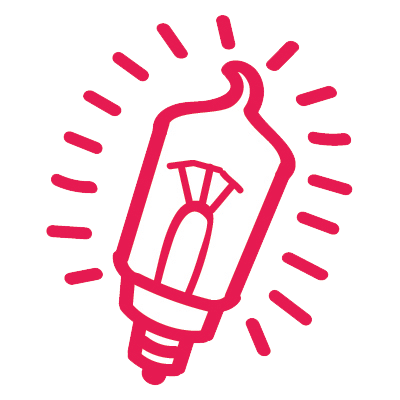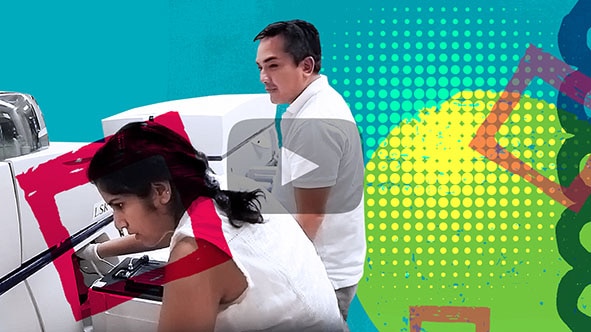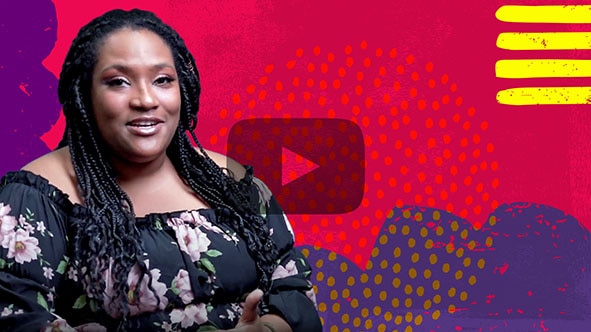There are many different types of health careers. Which one interests you? Do you like interacting with people? Working behind the scenes? A flexible schedule? You have many options!
NIH Job: Biologist
Biologists at the NIH are scientifically challenged daily through exciting life science research. NIH offers opportunities for biologists to gain new skills and techniques in nearly all specialty areas of biomedical research to meet the agency's mission and address national needs. Biologists are tasked with investigating ways to prevent, treat, and even cure common and rare diseases.
On this page:


Why health: careers you can feel good about
Health careers allow you to choose a job that reflects your values:
- Helping others: Health is a field that is dedicated to helping individual patients manage their care. You can prevent disease, promote healthy living, address public health concerns, and more.
- Treating everyone with dignity: Nearly a quarter of American adults (22.8% or 58.7 million people) report that they had a mental illness in the past year. You can help by providing support and treatment.
- Making a difference: Your time, talent, and experience can help reduce health disparities and build healthier communities.
Pathways into health: work while you’re in school
Did you know that you can get started working in health without enrolling in an expensive or time-intensive degree or certificate? You could start your journey in high school. Pathway programs let you try out different types of health career paths.

Jobs that are in demand today and tomorrow
The U.S. Bureau of Labor Statistics (BLS) has information on health occupations and their education requirements and average pay. The projected rate of growth of health occupations is 21%, compared to the average of 4% for all occupations. Here are a few of the roles that should have the highest number of new jobs available.
Home health and personal care aides
Home health and personal care aides support older adults and people with disabilities or chronic illnesses and help them with daily living activities.
Entry-level education: High school diploma or equivalent
Median pay: $33,530
Typical pay range: $23,910 to $42,450
Occupational therapy assistants
Occupational therapy assistants help people who have injuries, illnesses, or disabilities by providing them with independent living skills.
Entry-level education: Associate’s degree
Median pay: $67,010
Typical pay range: $48,670 to $89,230
Medical and health services managers and directors
Medical and health services managers and directors plan, direct, and coordinate the business activities of health employees, clinics, or public health agencies.
Entry-level education: Bachelor's degree
Median pay: $110,680
Typical pay range: $67,900 to $216,750
Opportunities in rural and underserved communities
139K
projected shortage of physicians in the U.S. by 2036, with the biggest gaps in rural communities
14%
projected shortage of registered nurses (RNs) in non-metro areas of the U.S. by 2036
Over 60 million people live in rural America. They face their own unique health challenges, and there are often fewer health workers serving these communities. Working in rural communities can help to address disparities in health care. It also connects patients with local resources to address social needs, which can be particularly challenging in rural and tribal areas.
Individuals who work in rural communities often have a lower cost of living and can enjoy the perks of living in a smaller, more interconnected community. The federal government provides scholarships, research grants, trainings, postings of open jobs, and more to support health professionals ready to work in rural areas:
- Commissioned Corps of the U.S. Public Health Service (USPHS Commissioned Corps): Opportunities exist to join America’s health reserve uniformed service in providing public health and clinical care within rural and underserved communities.
- Public Health AmeriCorps: Work to support youth mental health, public health, independent living assistance, or address the opioid crisis and substance use disorders while you earn a living allowance, funding to repay school loans, and more.
- National Health Service Corps (NHSC) Loan Repayment Programs: You could receive up to $100,000 to repay qualifying student loans in exchange for working at a rural health center, clinic, or approved substance use disorder treatment facility.
- Health Workforce Connector: If you want to work in a rural or underserved community, this job board allows you to search for roles at rural health clinics or hospitals by job title or discipline.
Opportunities in mental health and substance use treatment
16%
increase in employment projected between 2023 and 2033 for marriage and family therapists
13%
increase in employment projected between 2023 and 2033 for psychiatric technicians and aides
Millions of Americans are being treated or seeking treatment for mental health conditions or substance use disorders. Providers are needed more than ever to keep up with the demand for services. A career in behavioral health services gives you an opportunity to change people’s lives.
Behavioral health describes a wide range of services including mental health promotion and treatment, substance use disorder prevention and treatment, and recovery support. Careers usually require certification or licensure at the state level — ranging from peer support counselors who have lived experience to roles requiring medical degrees. Learn more about behavioral health jobs:
- Rural Behavioral Health: Several grants and programs exist to address mental health needs, substance use disorder, and drug prevention in rural communities, including the Rural Emergency Medical Service (EMS) Training grant program to recruit and train EMS personnel in rural areas.
- Behavioral Health Professionals Resources: Specific resources for behavioral health professionals to work in rural communities.
- Expanding Peer Support and Supporting the Peer Workforce in Mental Health: This issue brief explains what it means to be a peer support worker who helps others based on shared understanding from having a similar experience to the person you are helping.
Types of health careers: find what’s right for you
Discover different types of careers in health. To browse health careers or find suggestions based on your interests, visit the U.S. Department of Labor’s My Next Move.
Patient care
Do you want to help people one-on-one? Many health jobs focus on patient care and there is an increasing demand for people to work in long-term care facilities. You can also combine a job in health with your other personal interests by specializing in sports injuries, nutrition, the brain, or nearly anything you want.
Example roles: Medical Assistant, Psychiatric Aide, Nurse, Doctor
Support and administration
Do you like to organize? Prefer to work behind the scenes? Health work would not be possible without the administrative staff who make sure that everything is running correctly and in compliance with the law.
Example roles: Pharmacy Technician, Medical Administrative Assistant, Health Information Technologist
Laboratory
Do you like solving complex problems? Do you enjoy working with new technology? Bring your skills to work in a lab to help advance the health and science field.
Example roles: Data Scientist, Phlebotomist, Epidemiologist, Lab Technician
POV: you’re a doula
Breanna shares her story of how Ms. Linda's doula support made a difference in her positive birth experience.
Options that make it easier to pursue a health career
Whether you're ready to find a job in health now, or later, HHS has your back. The following resources provide further information on the benefits of a career in health and ways to support your career journey.
Starting a career in health does not mean you have to go into debt. Scholarships and loan repayment programs can help you fund your education.
Some health jobs provide more flexibility and may include the possibility to work remotely via telehealth. Keep in mind that options to work a flexible schedule and remotely are changing all of the time, and that most health work will still require some face-to-face tasks.
- Jobs with flexible schedules: Health jobs that allow you to set your own schedule, control the shifts that you work, or travel for work include Licensed Practical and Licensed Vocational Nurses, Home Health and Personal Care Aides, Registered Nurses (RNs), Occupational Therapists, Social Workers, Exercise Physiologists, Emergency Medical Technicians (EMTs) and Paramedics.
- Remote jobs: Health jobs that may be able to be done while working from home include Dietitians, Medical Transcriptionists, Substance Use, Behavioral Disorder, and Mental Health Counselors, Psychologists, Marriage and Family Therapists.
The U.S. government has a variety of websites that provide current health job opportunities working for government and non-government agencies.
- USAJobs: As the home for federal job postings, you can use this job board to find and apply for health jobs by agency, occupation, permanent or temporary employment terms, domestic or international locations, travel percentage, and other preferences.
- Veterans Affairs (VA): Review jobs in patient care, health support and administration, and lab tech for civilians and former members of the military at one of the largest employers of health care providers in the U.S.
- HHS Careers: Find a health job with the federal government at the U.S. Department of Health and Human Services, and among HHS agencies such as Centers for Disease Control and Prevention (CDC), Food and Drug Administration (FDA), and others.
- USPHS Commissioned Corps: Learn how you can work on emergency responses to public health crises and national emergencies, and if you are eligible to join the officer enrollment program.
- Health Workforce Connector: Find a non-government health career in a health professional shortage area (HPSA), critical shortage facility, or other underserved community, as well as search thousands of positions available at the NHSC- and Nurse Corps-approved sites.


